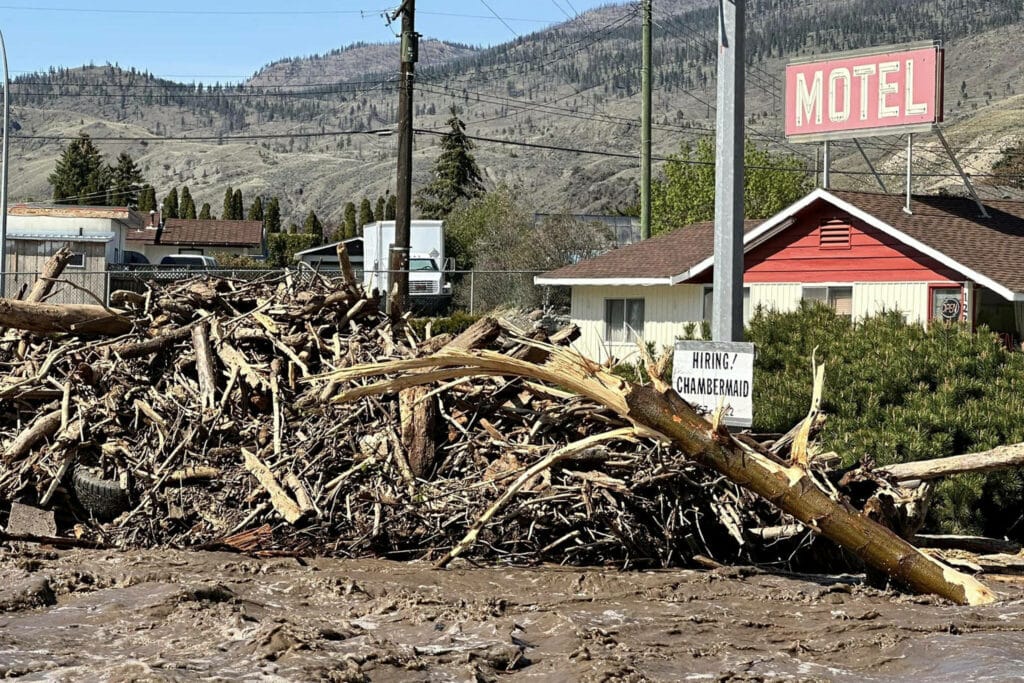
Rural Voice Missing from Emergency Task Force
An expert task force on emergencies that will weigh in on revising the province’s emergency legislation lacks representation from the Cariboo Region and rural communities as a whole, say critics.
Comprised of 14 experts appointed by the provincial government, the purpose of the panel is to provide recommendations to help B.C. be better prepared for future emergencies, such as wildfire and floods.
Margo Wagner, chair of the Cariboo Regional District board, said some good people were chosen for the task force including Scott Hildebrand, the CAO from Thompson Nicola. She said she is not worried that the Cariboo Regional District was not appointed to the board.
“It’s the lack of local government representation across the province that concerns me,” she said, particularly from those hard hit during this year’s wildfire season like West Kelowna, Bulkley Nechako or Columbia Shuswap.
The manager of emergency programs for the City of Prince George, Tanya Spooner, will sit on the task force but Wagner said that the concerns and priorities for a city like Prince George are different from those in rural areas of the North.
“I am concerned that the only person that is from the North is Tanya Spooner. I have the greatest respect for Tanya. She works for the Prince George Fire Department and the city of British George. She’s a great lady,” said Wagner. “But she works in a city. I do worry about that aspect.”
Lorne Doerkson, MLA for Cariboo-Chilcotin said the make-up of the task force falls short on several fronts.
“There’s a huge lack of rural representation, a huge lack of industry representation on this advisory panel, as well. And frankly, it’s pretty light as far as the North is concerned. I think there’s only one representative from the North,” said Doerkson.
He is also concerned that the ranching industry is not represented.
Emergency Minister Bowinn Ma said the task force is not working in isolation.
She disagreed that there is a lack of rural and remote representation, citing the participation of Chief Corrina Leween of the Cheslatta Carrier Nation, Chief Lynn Kenoras-Duck of the Adams Lake Indian Band, and Dan Deby, president of the Fire Chiefs Association of B.C.
In fact, most of the task force members who are not from the Interior or the North are senior government staff named to the group so they can ensure recommendations are implemented right away, the minister said.
The minister said that in targeted discussions, it will be the regions themselves leading the conversation. The task force may have questions but it is the regions themselves who know what they went through and know where the sore parts are, she added.
Critics of the task force, including Barriere Mayor Ward Stamer, have called for an independent, third-party tactical review of B.C.’s wildfire response – something they say the government-appointed task force will not provide.
The Emergency and Disaster Management Act introduced Oct. 3 will replace emergency legislation that has not undergone significant revisions since 1993. Ma said she hopes the bill will pass during the fall session.
Government has not specified a date for the task force to report back with its recommendations but expectations are that B.C. wildfire emergency response will need to be improved by next summer.
Ma acknowledged there is work to be done, as seen in a report released Oct. 3 by the BC Ombudsperson.
That report found an “under-resourced system in place that isn’t meeting the needs of people,” and made 20 recommendations the minister has already committed to implementing. Ma said the aim of government is to continuously improve emergency support services to support residents in emergency situations.
“We did make quite a few changes on the fly, especially when we saw what was going on in Kelowna with thousands of evacuees not receiving support the same day that they were asking for it, which is what is supposed to happen,” Ma said.
Ma said the new legislation has a broader scope of emergencies and better recognizes the different phases of emergency support required. The War Measures Act of the early 20th century informed the existing legislation but the landscape has changed, she said.
Doerkson has concerns about the public commenting period on this bill scheduled to take place until the end of December when written submissions can be observed.
“And so, frankly, it’s, and I’ve said this in the legislature as well, it’s a little bit like the cart before the horse a bit here. You’ve still got a public commenting period. You’ve got an advisory panel that will certainly be meeting going forward. And so I think that we need that comment before we can bring up a bill that’s going to affect the entire province probably in very serious ways, right?” Doerkson said.
With files from Wolf Depner
